Results
-
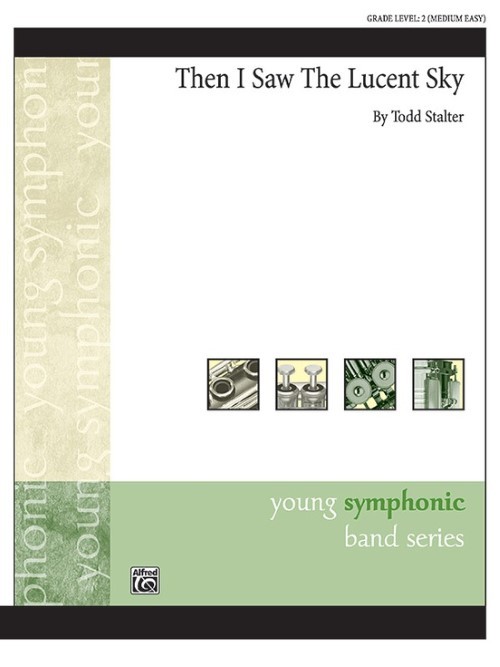 £53.95
£53.95Then I Saw the Lucent Sky (Concert Band - Score and Parts) - Stalter, Todd
This work was inspired by the music of Hildegaard von Bingen, a medieval Benedictine nun whose chant melodies are remarkable for their soaring passages and simple beauty, and whose theological and visionary writings were unique for her time. The title comes from one of her writings: Then I saw the lucent sky, in which I heard different kinds of music, marvellously embodying all the meaning I had heard before.Duration: 3.45
Estimated dispatch 7-14 working days
-
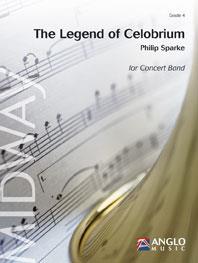 £168.50
£168.50The Legend of Celobrium (Concert Band - Score and Parts) - Sparke, Philip
This piece is about a medieval legend, The Treasure of Zolverknapp, that is associated with the region around the village Zolver in Luxembourg. It tells the tale of hidden treasure, brave knights, fierce battles, silver and jewels and a devil's curse! All of these combine to make The Legend of Celobrium a legendary concert work.Duration: 12:45
Estimated dispatch 7-14 working days
-
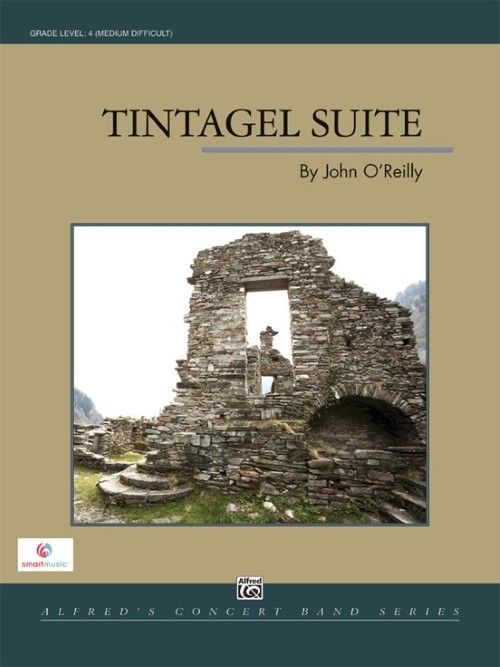 £73.50
£73.50Tintagel Suite (Concert Band - Score and Parts) - O'Reilly, John
Tintagel Castle, on the wild Cornish coast of southwest England, has a fascinating history. The drama of this jagged coast has inspired many legends including that of King Arthur and the Knights of the Round Table. This colorful 4-movement suite depicts the Medieval Castle, the King Arthur legend, an early English ballad, and a celebration at the castle honoring the visiting Celtic Lords. Duration: 7.15
Estimated dispatch 7-14 working days
-
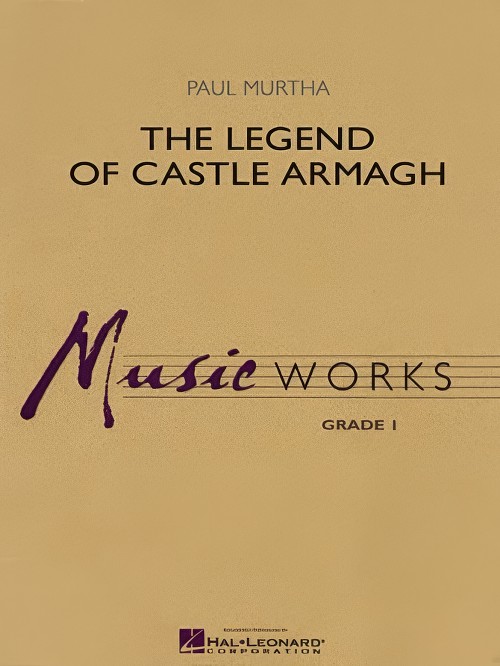 £42.50
£42.50The Legend of Castle Armagh (Concert Band - Score and Parts) - Murtha, Paul
Commissioned by the Cabarrus All-County Middle School Band (Concord, North Carolina), this work was inspired by the composer's Irish heritage and the rich history of Ireland. With three main themes, this programmatic work opens with a peaceful sunrise with mist rising from the bog. The second theme describes the great hall of a majestic medieval castle, complete with vibrant colours and pageantry. The exciting battle theme follows and ultimately resolves to a return of the earlier themes. A wonderfully effective setting for beginning players!Duration: 3:10
Estimated dispatch 7-14 working days
-
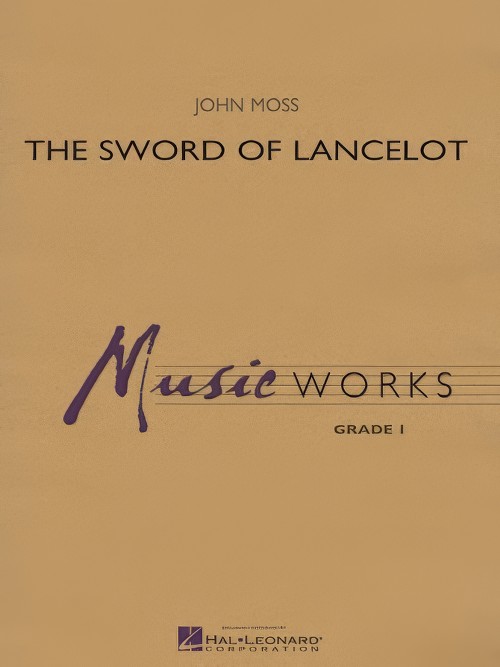 £53.50
£53.50The Sword of Lancelot (Concert Band - Score and Parts) - Moss, John
There is a flavor of medieval chivalry in this appealing easy overture. Strong themes and active percussion writing characterise the opening section. A brief slow section featuring the woodwinds precedes the energetic and powerful finish. Impressive yet very playable.Duration: 3.00
Estimated dispatch 7-14 working days
-
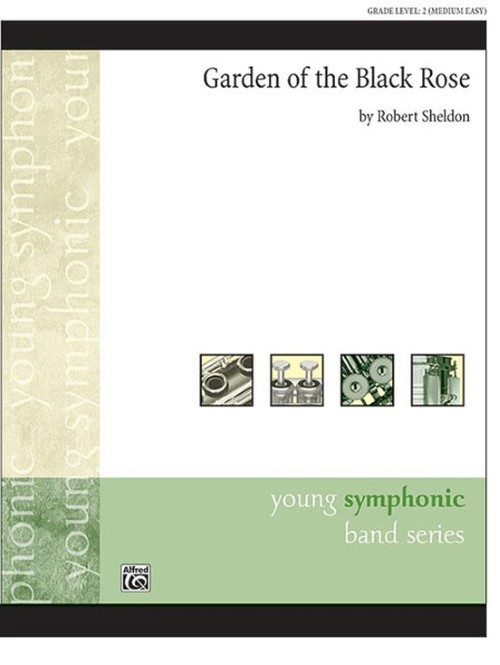 £52.95
£52.95Garden of the Black Rose (Concert Band - Score and Parts) - Sheldon, Robert
Garden of the Black Rose evokes images of medieval times. Dark moods and colorful orchestration encourage even young players to perform with great expression and intensity. The meditative opening yields to a fast-paced theme featuring rhythmic ostinato and melodic layering. Great fun to play and a refreshing selection for concert or contest. Duration: 3.45
Estimated dispatch 7-14 working days
-
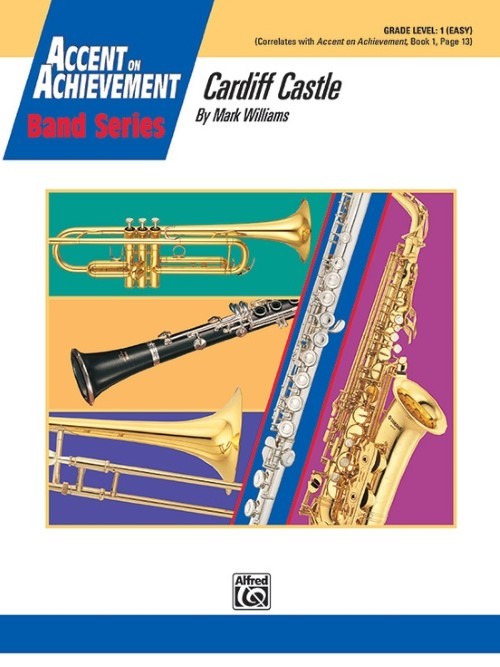 £45.95
£45.95Cardiff Castle (Concert Band - Score and Parts) - Williams, Mark
The sounds of a valiant knight going into battle are heard in this powerful original by Mark Williams. This work uses only seven notes yet sounds surprisingly sophisticated. Named after the famous castle in Cardiff, Wales, this selection will make your first-year band sound great. An excellent introduction to the modal sounds of Medieval and Celtic music.Duration: 2.15
Estimated dispatch 7-14 working days
-
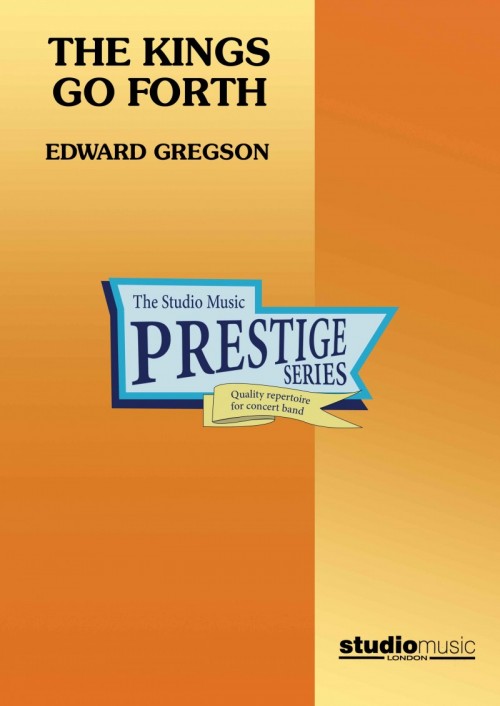 £44.95
£44.95The Kings Go Forth (Concert Band - Score only) - Gregson, Edward
This work was commissioned jointly by the Royal Air Force Music Service and an American Universities Consortium and received its world premiere during the 1996 RAF British Tour. It is scored for large symphonic wind band, with the addition of voices.The work is a sequel to the highly successful The Sword and the Crown which was premiered in 1991 by the mass bands of the RAF (and also was an RAF commission). That work was based on music written for the Royal Shakespeare Company productions of The Plantagenets and Henry IV, parts 1 and 2 (for productions between 1988 and 1991).The Kings go Forth is similarly based on musical material for those productions. It uses different thematic elements and incorporates them into a three-movement suite entitled: The Church; The People; The State.This reflects the fact that in Henry IV Parts 1 and 2, Shakespeare introduces The People as an important element in the dramatic structure. The Church and The State are, of course, both leitmotivs throughout the entire plays. An Agnus Dei is heard at the outset from a solo voice. The ensuing Dies Irae is a fast and, at times, quite violent dance. The two sections which form the basis of the second movement, The People, concentrate on popular elements and reflect to some extent the tavern scenes in the plays. The two ideas presented are a harvest hymn reflecting the country scenes set in Gloucestershire, and a jazzy, 'up-tempo' dance based on the medieval song, Sumer is icumen in. The third movement, The State, deals with the Kings theme in the title of the piece. The juxtaposition of battle music with funeral music for Henry IV and Henry VI leads to a reworking of the leitmotif from the beginning of the work. The final section is Coronation music for Henry V, eventually leading to a triumphant climax. - Edward GregsonDuration: 17.15Recorded on QPRM 125D Festival of Music 1996, Massed Bands of the Royal Air ForceRecorded on QPRM 134D The Kings Go Forth, Royal Northern College of Music Wind Orchestra
Estimated dispatch 7-14 working days
-
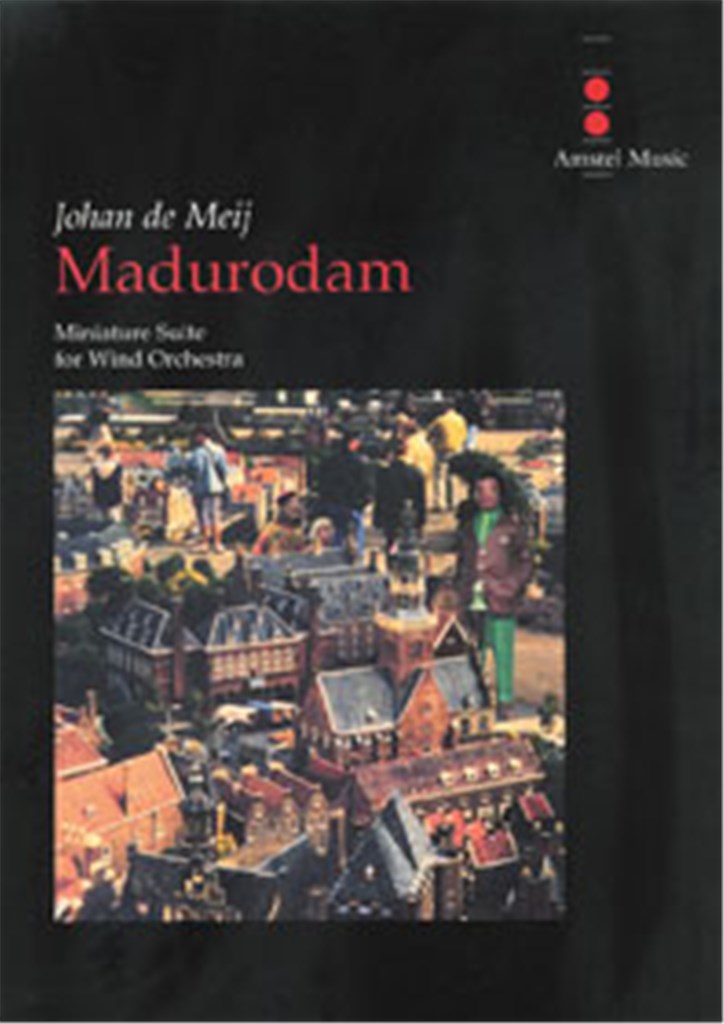 £132.00
£132.00Madurodam (Concert Band - Score and Parts) - De Meij, Johan
Madurodam is a small scale miniature town at Scheveningen (near The Hague) and is since many years one of the most important tourist attractions of the conurbation of Western Holland (called Randstad). On a scale 1:25 a charming picture of The Netherlands is given in bird's eye view: several important buildings, churches and townscapes are reconstructed up to the smallest details. There is also a fine transport system: a network of railroads, harbours and motorways covers the park and Madurodam Airport enables air traffic with all continents. The miniature suite Madurodam consists of eight short parts presenting a musical impression of the smallest town in The Netherlands.Reveille the piccolo flute and the side drum announce a new dayToy Soldiers there is a military parade in front of the George Maduro BarracksBinnenhof/Buitenhof a solemn melody is the main theme of the suite and depicts the state buildings and the nearby lake Hofvijver at The HagueSmall Windmills everything that moves or whirls at Madurodam is described in this barrel organ waltzIntermezzo/Nocturne Madurodam by night is described by a solemn passage played in unison by the lower instrumentsThe Westerkerk Church also the capital Amsterdam is represented with the chimes of the famous Westerkerk churchThe Muiderslot Castle an elegant pavane recalls medieval atmospheresGrande Finale the windmill theme comes back and then the suite comes to an end with the Binnenhof theme, decorated by the first strains of the national hymn, Wilhelmus.Duration: 9.15
Estimated dispatch 7-14 working days
-
 £89.50
£89.50The City in the Sea (Euphonium Solo with Concert Band - Score and Parts) - Clarke, Nigel
The composer's re-working of his legendary brass score, an atmospheric, dramatic and haunting depiction of the tragedy of Dunwich, the medieval city engulfed by the remorseless forces of nature.Duration 18:00
Estimated dispatch 7-14 working days
